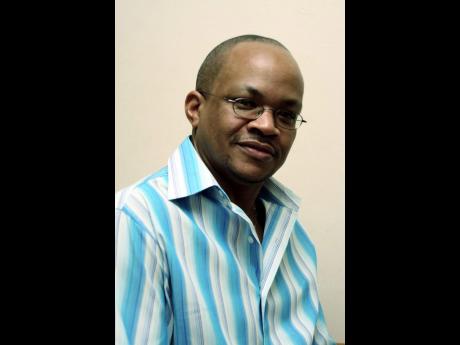Will black lives ever matter in America?
During Richard Pryor’s performance in his hugely popular film ‘Richard Pryor: Live in Concert’, the iconic comedian addressed the issues of police brutality affecting members of the African American community as well as white denial: “Police got a chokehold they use out here though man, they choke niggas to death. That mean you be dead when they through … did you know that? Niggas be going ‘Yeah we know’. Whites going ‘No, I had no idea’. Yeah, two grab your legs, one grabs your head, and then ‘oh snap … he broke.'”
The performance, recorded in Long Beach, California in 1978, is one of Pryor’s best. He was an excellent stand-up comedian, and his vocal inflections, body language, facial expressions and timing made that segment hilarious. I laughed heartily when I watched the video back in the early 1980s, but I could tell that the subject was a serious one, affecting many black Americans.
On July 17, 2014, in Staten Island, New York City, Eric Garner was approached by police officers on suspicion of selling single cigarettes from packs without tax stamps. Garner resisted being arrested and was placed in a ‘chokehold’ by one of the officers. During the incident, which was recorded on a cell phone by one of Garner’s friends, he said “I can’t breathe” 11 times while lying face down on the sidewalk. He eventually lost consciousness and was pronounced dead at the hospital approximately one hour later. The medical examiner concluded that Garner was killed as a result of the ‘chokehold’ and ruled his death a homicide, but despite this, and the video evidence, the jury decided not to indict the officer who killed Garner.
When the story broke and I heard of Garner’s death, I immediately recalled Pryor’s remarks 36 years earlier, and the verdict was a sobering reality check. I was also reminded of the Rodney King incident in 1991, where following a high speed chase, King was hit 33 times and kicked six times by four officers, resulting in facial bone and right ankle fractures, and multiple bruises and lacerations. Despite this also being captured on video, the officers walked. There is no doubt that the justice system in the United States of America is skewed against persons of colour.
If you remain sceptical, perusal of the statistics will confirm the glaring and disturbing imbalance. The United States has the highest incarceration rate of any nation, with 2.3 million persons behind bars in federal and state prisons and county jails, and although blacks make up only 12 per cent of the country’s population, almost half of the persons incarcerated are black.
According to a Sentencing Project analysis of data, black men are six times more likely than white men to be in prison, while USA TODAY found that at least 70 departments scattered from Connecticut to California arrested black people at a rate 10 times higher than people who are not black. One example of this is Dearborn, Michigan. Only about four per cent of the city’s residents are black, but more than half of the persons arrested in 2011 and 2012 were persons of colour. Interestingly, over that two year period, 4,500 black people were arrested – 500 more than lived in the city. Also, in federal prisons, more than half of those sentenced to stints of a year or longer are there for drug crimes, and the New York Times reported that black Americans were nearly four times as likely as whites to be arrested on charges of marijuana possession in 2010, even though both groups used the drug at similar rates.
Not only are blacks more readily imprisoned, but they are more likely to experience lethal force. The Malcolm X Grassroots Movement found that every 28 hours a black person is killed by police or vigilante law enforcement; MotherJones.org reported that black people were about four times as likely to die in custody or while being arrested than whites, and The Guardian found that black Americans are more than twice as likely to be unarmed when killed during encounters with police as whites.
Many have theorized it for years, but the Federal Bureau of Investigation (FBI) is now reporting that several police departments have been deliberately infiltrated by racist, white supremacist organizations. A 2006 report actually stated that members of a Los Angeles sheriff’s department had organized a Neo-Nazi gang, and described ‘ghost skins’, white supremacists who avoid overt displays of their racist beliefs in order to facilitate them blending into society and covertly advancing their causes.
Earlier this year, seven San Francisco cops were suspended after investigations revealed that they exchanged several ‘white power’ communications, including some mentioning lynching African Americans and burning crosses. Three reputed Ku Klux Klan members that served as correction officers were also arrested for conspiring to murder a black inmate, while in Fort Lauderdale at least four police officers were fired after an investigation found that they fantasized about killing black suspects.
So, 150 years after the abolition of slavery in the United States and 51 years after President Lyndon B. Johnson signed the 1964 Civil Rights Act into law, there appears to be institutionalized racism in the American justice system. Yes, all lives matter, but the unpleasant reality of the odds being stacked against African Americans makes organizations and movements such as #BlackLivesMatter relevant and very necessary. The question is, will black lives ever be seen to matter to those who have the power to change the warped system?
Michael Abrahams is a gynaecologist and obstetrician, comedian and poet. Email feedback to columns@gleanerjm.com and michabe_1999@hotmail.com, or tweet @mikeyabrahams.

